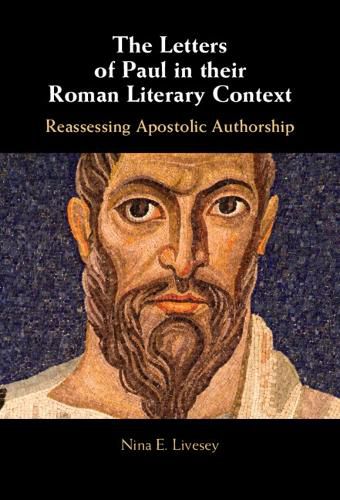Readings Newsletter
Become a Readings Member to make your shopping experience even easier.
Sign in or sign up for free!
You’re not far away from qualifying for FREE standard shipping within Australia
You’ve qualified for FREE standard shipping within Australia
The cart is loading…






Since the late-nineteenth century, scholars have all but concluded that the Apostle Paul authored six authentic community letters (Romans, 1 and 2 Corinthians, Galatians, Philippians, and 1 Thessalonian) and one individual letter to Philemon. In this book, by contrast, Nina E. Livesey argues that this long-held interpretation has been inadequately substantiated and theorized. In her groundbreaking study, Livesey reassesses the authentic perspective and, based on her research, reclassifies the letters as pseudonymous and letters-in-form-only. Like Seneca with his Moral Epistles, authors of Pauline letters extensively exploited the letter genre for its many rhetorical benefits to promote disciplinary teachings. Based on the types of issues addressed and the earliest known evidence of a collection, Livesey dates the letters' emergence to the mid-second century and the Roman school of Marcion. Her study significantly revises the understanding of Christian letters and conceptions of early Christianity, as it likewise reflects the benefit of cross-disciplinarity.
$9.00 standard shipping within Australia
FREE standard shipping within Australia for orders over $100.00
Express & International shipping calculated at checkout
Since the late-nineteenth century, scholars have all but concluded that the Apostle Paul authored six authentic community letters (Romans, 1 and 2 Corinthians, Galatians, Philippians, and 1 Thessalonian) and one individual letter to Philemon. In this book, by contrast, Nina E. Livesey argues that this long-held interpretation has been inadequately substantiated and theorized. In her groundbreaking study, Livesey reassesses the authentic perspective and, based on her research, reclassifies the letters as pseudonymous and letters-in-form-only. Like Seneca with his Moral Epistles, authors of Pauline letters extensively exploited the letter genre for its many rhetorical benefits to promote disciplinary teachings. Based on the types of issues addressed and the earliest known evidence of a collection, Livesey dates the letters' emergence to the mid-second century and the Roman school of Marcion. Her study significantly revises the understanding of Christian letters and conceptions of early Christianity, as it likewise reflects the benefit of cross-disciplinarity.